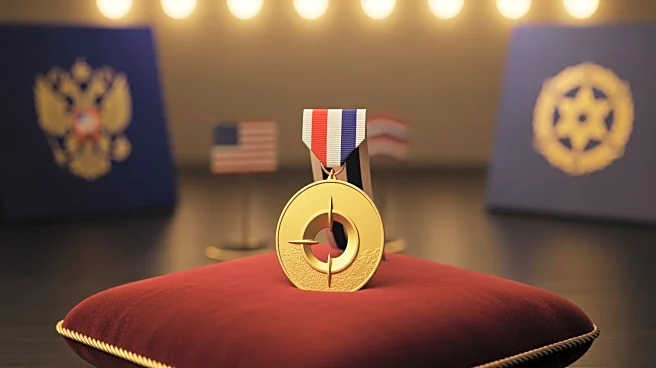What's Happening?
A coalition of retired military nurses and supporters is campaigning for the Congressional Gold Medal to be awarded to nurses who served during World War II. These nurses, including Alice Darrow, who is now 106, played critical roles in treating wounded
soldiers under dangerous conditions. Despite their significant contributions, these nurses have largely gone unrecognized compared to other groups like the Women Airforce Service Pilots of WWII. The campaign is led by U.S. Sen. Tammy Baldwin and U.S. Rep. Elise Stefanik, who have introduced legislation to honor these nurses. However, the bill faces challenges as it requires substantial support in both the Senate and the House.
Why It's Important?
Recognizing WWII nurses with the Congressional Gold Medal would highlight their vital contributions to military history and healthcare. These nurses not only saved lives but also laid the groundwork for modern military medical practices. The recognition would also address historical oversight, as many of these nurses faced significant challenges, including racial discrimination and harsh conditions as prisoners of war. Awarding the medal would serve as a formal acknowledgment of their bravery and dedication, potentially inspiring future generations in the fields of healthcare and military service.
What's Next?
The legislation to award the Congressional Gold Medal to WWII nurses requires two-thirds support in both the Senate and the House. Currently, the bills have limited cosponsors, indicating a need for increased advocacy and support from lawmakers. If successful, the recognition would be a significant milestone in honoring the contributions of these nurses. The campaign may also prompt broader discussions on the recognition of military personnel and the historical roles of women in wartime efforts.
Beyond the Headlines
The campaign to honor WWII nurses also sheds light on the broader issue of gender and racial equality in military history. Many nurses faced discrimination and had to fight for their right to serve, highlighting the intersection of race and gender in military service. Recognizing their contributions could lead to more inclusive historical narratives and inspire efforts to address ongoing disparities in military and healthcare professions.














